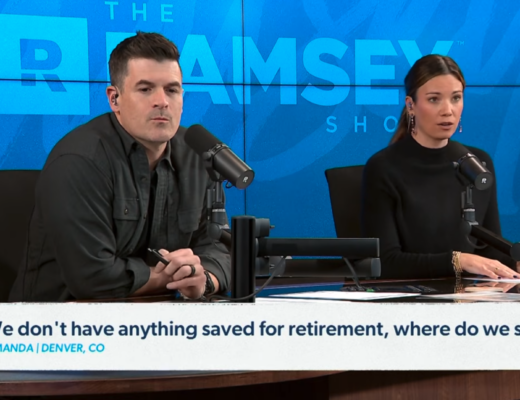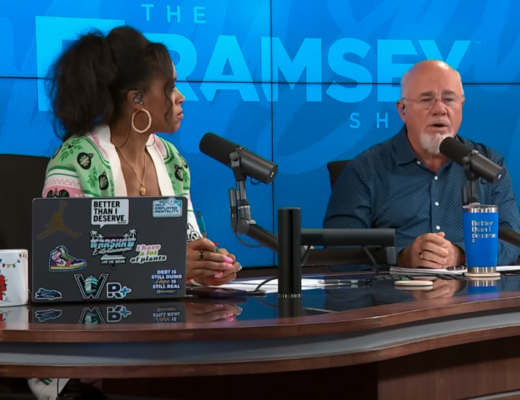I want to share my thoughts on the current state of the housing market and how personal financial discipline is more important than any political decision. The market is slowly picking up speed as winter thaws into spring, and many of us are watching keenly. My view is clear: instead of waiting for dramatic changes or political promises, we must focus on our own financial strategies. The state of this market matters because it influences our goals and our future wealth.
Buying a house is more than a large purchase. It represents stability, growth, and the beginning of a new step in life. I have spent many years studying real estate and personal money management. Every insight, every rule of sound money management, has come down to one simple truth: personal responsibility is the key. Our approach to money and timing matters much more than any external economic or political event.
Real Estate Market Trends
The housing market is showing signs of life. Recently, we are witnessing slight drops in interest rates, and although the changes are not dramatic, they indicate a shift. Home listings are attracting more attention after a period when activity had nearly stalled. The market is not experiencing a sudden oversupply, nor is there a major crash; it is evolving slowly and predictably.
The essential takeaway is that genuine progress is influenced by our own actions. Political decisions, while not irrelevant, do not determine our personal financial outcomes. As I have observed, notable shifts in the market arise more from individual financial decisions than from any specific political leader’s actions. A memorable phrase I like to repeat is the advice to “time your own financial life.” In other words, you must decide when you are ready rather than waiting on unpredictable government moves.
Time your own financial life and go, now is the right time for us to buy.”
This statement reflects the need for self-reliance and careful planning. Interest rates might drop and policy shifts may occur, but the most important factor in making a wise home purchase is personal preparation. When you take control of your finances, you are better equipped to navigate the changes that come with any market fluctuation.
Building a Solid Financial Foundation
A successful home purchase is rooted in discipline and planning. It is not about timing political events or relying on promises made from the top. Every buyer should establish personal financial security before considering the purchase of a property. Here are the essential steps that everyone should follow:
- Become Debt-Free: Ensure you have paid off high-interest debts. This allows you to build wealth without being weighed down by unnecessary interest payments.
- Create an Emergency Fund: Save an amount equivalent to three to six months of expenses. This cushion protects you against unexpected challenges.
- Plan for a Solid Down Payment: For first-time buyers, a good down payment is crucial. If you have purchased before, aim for at least a 20% down payment to avoid extra mortgage insurance payments.
- Keep Your Mortgage Payment Manageable: Your monthly house payment should not exceed a quarter of your take-home pay after taxes.
The list above highlights the core areas that need attention. Each bullet point is a building block that reinforces financial security. By following these steps, you ensure that you are ready to handle the responsibility of home ownership without stretching your budget too thin.
In my experience, planning and discipline are more valuable than trying to outguess the market. I have observed that when buyers adhere to these principles, they not only protect themselves financially but also set the stage for future growth. Home buying is a long-term commitment, and proper preparation is the cornerstone of lasting success.
Navigating Economic Uncertainty
These are not the days to wait for a dramatic market turnaround or expect a political intervention to solve your financial issues. Instead, you must make decisions based on your own situation. Despite some concerns about tariffs or the potential influence of government policy, I find that these issues have little immediate impact on personal finances when you are well-prepared.
Over the past few months, I have observed increased activity in the market. Homes that once received little interest are now drawing regular viewings. This is a sign that confidence is returning. When trust in the economy begins to be rebuilt, more people step into the marketplace and make decisions that further enhance economic momentum.
Personal initiative can propel the market forward. When individuals take responsibility for their own financial health, the effect ripples outward. Decisions to buy a home, invest wisely, or even adjust spending can contribute to a broader improvement in economic conditions.
One piece of advice I give is not to let fear hold you back. Waiting for the perfect moment might lead to missed opportunities. Instead, use the momentum created by small improvements to guide your actions. Whether interest rates dip further or remain just where they are, you can make adjustments by refinancing later if needed.
It is also crucial to note that a house is not just an asset that appreciates. It is a long-term commitment that must fit within a clear financial plan. By ensuring that your financial strategy is sound, you can enter the market with confidence that will help you weather any unexpected changes in the economic climate.
A Call for Personal Responsibility
My view is clear: political leaders do not buy houses for us, and their actions influence the market only marginally. Instead, it is incumbent upon us to shape our own financial destinies. When political decisions lead to a general atmosphere of hope, it is our responsibility to act with maturity and clear planning.
Using a few common-sense rules, you can achieve a calm and steady path to home ownership. This is not about predicting market booms or waiting for a crisis to pass. It’s about taking control of your personal finances through reliable and painstaking methods. Consider the following key actions:
- Focus on your finances first. Ensure that all high-interest debts are paid and that you have built a sound emergency fund.
- Monitor the market casually, but do not let it dictate your decisions. Instead, let your financial readiness be your guide.
- Stick to a strict budget. Only consider a home purchase when your expenses and savings are fully in line with your long-term goals.
These steps remind us that the power to achieve our goals is in our hands. When you focus on clearing debt and planning your budget, the market’s ups and downs become less risky. In my journey, I have seen that those who are disciplined in their money management are the ones who find stability in uncertain times.
It is not enough to simply watch the market. Instead, active participation through sound financial practices makes the difference. This approach is both practical and sustainable, as it builds the resilience needed for long-term success in the real estate market.
Taking Action Now
One common myth in today’s market is the idea of waiting for the perfect rate or a dramatic market shift. In my view, delaying decisions in the hope of a better deal can often lead to missed opportunities. Home buying is not a race set by external factors but rather a personal milestone that should be reached when you are ready.
You might hear suggestions that the market will bounce back quickly or that lower interest rates are just around the corner. However, the reality is more measured. By the fall, the market might show clear signs of activity improvement, but that does not mean you should postpone your plans if you are prepared.
Decisive action based on your financial readiness can lead to better outcomes than trying to time the market perfectly. The advice to “marry the house and date the rate” is not just catchy – it emphasizes the importance of a long-term commitment despite short-term changes in interest rates. If rates drop later, you can always refinance. This idea liberates you from the anxiety of waiting for ideal conditions.
For me, the key lesson is that flexibility and readiness matter more than speculative timing. If you maintain a strong financial plan and have all your bases covered, then the purchase of a home will be a positive step no matter the fluctuations in the market.
Conclusion
The real estate market is gradually coming back to life, and there is a clear message for all prospective home buyers. Personal financial discipline, not external influences, will guide you to success. When you eliminate debt, build a resilient emergency fund, and commit to a sensible down payment and affordable mortgage payments, you are set for long-term gain.
Political actions and economic forecasts, while influential to a degree, do not determine your ability to secure a good home at the right price. Instead, focus on your own financial readiness. Do not be deterred by short-term market hesitations or wait for promises that may never come to pass. Your future lies in the decisions you make today.
Now is the time to act on your personal financial strategy. If you are ready to buy, trust your judgment and follow the plan that best suits your life. By taking charge of your finances, you foster a sense of confidence and security that will serve you well in all areas of life. Make your move based on solid financial principles. Prepare, plan, and then step forward with conviction.
Your financial future is in your hands. Choose well and plan carefully. By doing so, you contribute to a more stable and promising economy and set yourself up for a lifetime of security and growth.
Frequently Asked Questions
Q: What is the most important step before buying a home?
Building a strong financial foundation comes first. This includes paying off high-interest debt, setting aside three to six months of expenses as an emergency fund, and saving for a down payment.
Q: Should I wait for interest rates to drop before buying?
It is wiser to focus on your financial readiness rather than waiting for ideal market conditions. If rates drop later, refinancing may be an option to improve your mortgage rate.
Q: How can I ensure that I stay within my budget when buying a home?
A good rule is to limit your monthly housing payment to no more than one-fourth of your take-home pay after taxes. This approach keeps your mortgage affordable while allowing room for other expenses.
Q: What role does the political climate play in my home buying decision?
While government decisions can influence the market slightly, personal financial discipline is far more important. Focusing on sound money management and planning ensures that you are prepared regardless of political changes.







